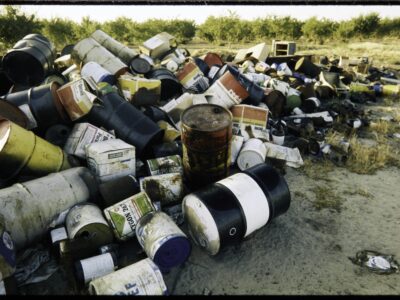Saving Bambi’s forest
 Here on Legal Planet we talk a lot about government-mediated solutions to environmental problems, with good reason (and not, I like to think, simply as the enviro-lawyer corollary to the maxim that those wielding hammers tend to treat problems like nails). But every now and then it’s nice to read about the power of direct, unmediated action by those demading solutions against those in a position to provide them. This week, Disney — which is apparently the largest children’s book publisher in the world — announced that it will reform its paper sourcing policies to eliminate paper from “irresponsibly harvested fiber” and to maximize recycled content and content from sources certified by the Forest Stewardship Council. More on the decision from the publishing industry’s perspective here.
Here on Legal Planet we talk a lot about government-mediated solutions to environmental problems, with good reason (and not, I like to think, simply as the enviro-lawyer corollary to the maxim that those wielding hammers tend to treat problems like nails). But every now and then it’s nice to read about the power of direct, unmediated action by those demading solutions against those in a position to provide them. This week, Disney — which is apparently the largest children’s book publisher in the world — announced that it will reform its paper sourcing policies to eliminate paper from “irresponsibly harvested fiber” and to maximize recycled content and content from sources certified by the Forest Stewardship Council. More on the decision from the publishing industry’s perspective here.
Disney’s change was voluntarily undertaken, but only after a well-known advocacy group applied pressure through some nice eco-hijinks, as reported in the LA Times (sub. req’d.):
In May of 2011, activists from the Rainforest Action Network hung a banner outside Disney’s Burbank headquarters charging the entertainment giant with “destroying Indonesia’s rainforests.”
At the time, Disney called the protest a “publicity stunt” and said it had already made a commitment to “sustainable paper” in a 2010 corporate citizenship report.
However, the company started talks with the Rainforest Action Network and, on Thursday, unveiled a new paper policy.
All of this happened against a background of regulated markets, trade laws, and other relevant policies that made Disney’s decision tenable. But it probably wouldn’t have happened–at least not now–without some devoted folks at RAN pushing for more than was required by law, and doing it through direct action. What makes an environmental problem ripe for direct action and organizing? It undoubtedly helps if your target is (a) a household name, (b) that trades on a reputation for being warm, fuzzy and friendly, (c) whose profits are directly dependent on consumer choices, and (d) whose anti-environmental actions can be easily distilled and communicated (like, for example, turning pristine rainforests into cheap pulp). It probably also helps a lot if, as here, you’ve worked for decades to inculcate a love of Bambi into your customer base. When these factors and good organizing come together, it’s fun to see.







Reader Comments